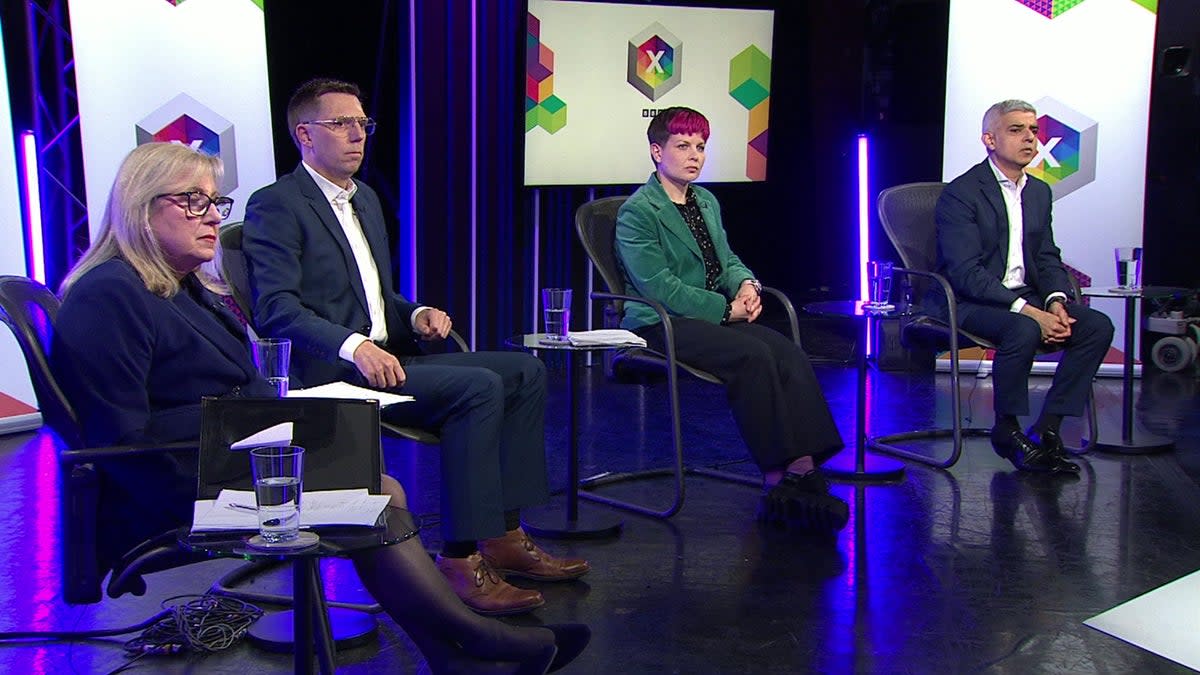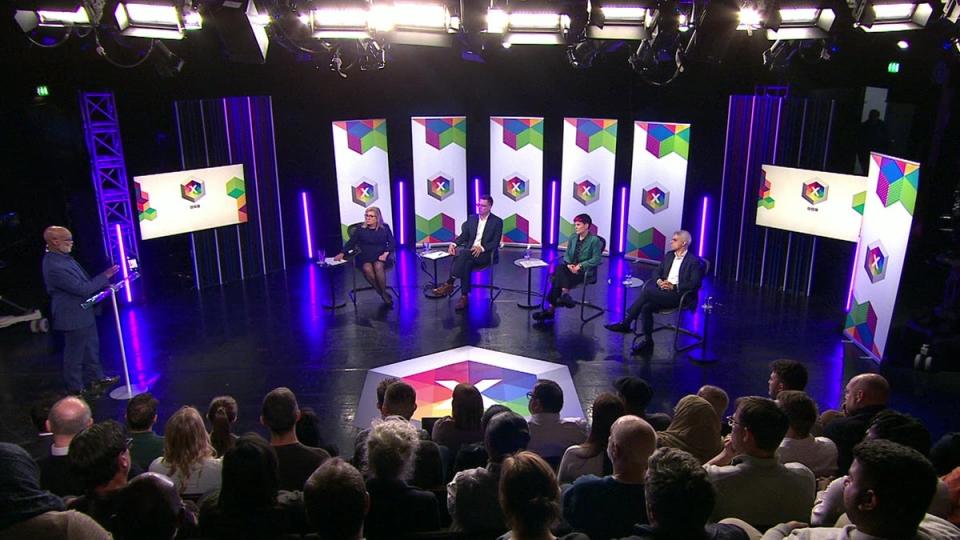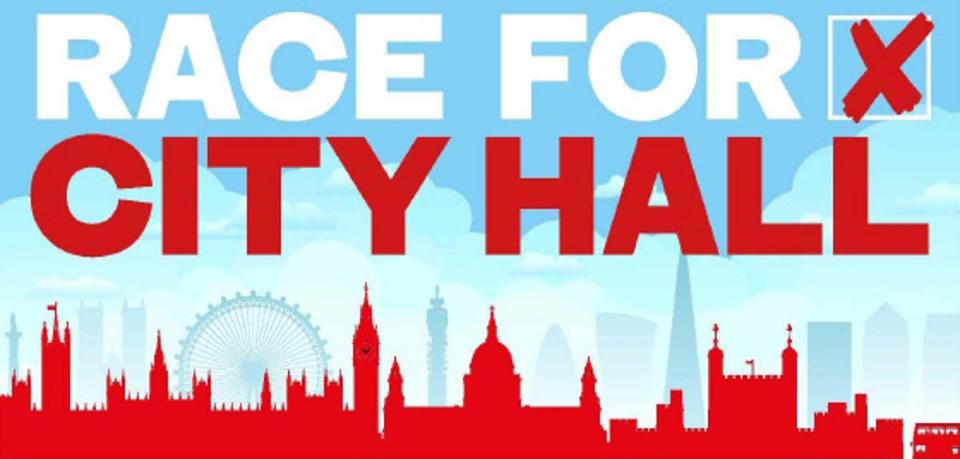Sadiq Khan admits mayoral elections will be judgement day on Ulez and other transport policies

Sadiq Khan has admitted that the mayoral elections will effectively become judgement day on the popularity of his transport policies such as the Ulez.
Asked at a BBC London TV hustings to be broadcast on Thursday night whether he had succeeded in bringing Londoners with him as he attempted to clean up the air, discourage car travel and build cycle lanes, Mr Khan made the stark confession: “We will find out on May 2.”
He restated his vow not to introduce pay-per-mile road charging, despite previous indications that he was in favour of replacing the Ulez and congestion charge with a “smart” system to help reduce emissions.
“We don’t need it now,” he said. “We expanded the Ulez to cover all of London. We will get to net zero without the need for pay-per-mile.”
Mr Khan, who is seeking a record third term in next Thursday’s elections, was unexpectedly clear about his support for some LTNs (low traffic neighbourhoods), many of which have been installed by councils using Government money allocated by Transport for London.
“I do support councils who have good LTNs,” he said. “Where they are not good, we will try and persuade them to change them.
“We have got to recognise our population is growing. We want people to walk, cycle, use public transport and drive clean cars.”

Asked whether he would do anything differently in relation to the way the Ulez was expanded Londonwide last August despite being opposed by a majority of people who responded to TfL’s official consultation, Mr Khan said: “No.”
He said that just as Londoners wouldn’t put up with dirty water, they shouldn’t put up with dirty air.
He said he had acted in response to the death of south London schoolgirl Ella Kissi-Debrah, who was the first to have air pollution given as a cause of death on her death certificate, and said “lives have been extended” because of fewer cases of asthma.
“This is an issue of social justice. It’s an issue of racial justice,” he told the invited audience at the Bernie Grant Centre in Tottenham.
The hustings, which also featured Tory candidate Susan Hall, Lib-Dem Rob Blackie and Zoe Garbett for the Greens, saw a woman whose teenage brother who was the victim of a fatal knife crime attack challenge the candidates on what they would do to reduce the threat to young Londoners.

Tilisha Goupall, whose brother Jermaine was killed aged 15 in a pre-meditated attack by a gang in Croydon in 2017, told the Standard afterwards: “I don’t think they answered the question. I feel like they went round in circles when I asked what they would do other than stop and search.”
She told the candidates that there had been a “serious spike in youth violence” and primary school children were carrying knives.
Mr Khan, who spoke privately with Ms Goupall after the programme, was forced by BBC presenter Eddie Nestor to defend his record on violent crime.
Mr Khan, who grew up in Tooting, revealed: “I could have been one of the young people who got involved in knife crime. I was raised on a council estate. My youth club saved me – my boxing coach saved me.”
The programme, which was recorded on Wednesday night, quizzed the four main candidates on crime, housing and transport.
Ms Hall vowed to end “the war on motorists”, saying: “The 20mph limits that are on the main roads are just dreadful. Our streets are clogged up now, which means we’ve not got a flowing city. A successful city is a moving city.”
The Conservative candidate promises in her manifesto to re-introduce higher limits of 30mph or 40mph on main roads “where safe to do so”.
But Mr Khan warned: “If somebody’s knocked over at 30mph or more, you’re five times more likely to die or be seriously injured.
“You go and speak to a bereaved mum whose child has been run over by a car moving at more than 30mph. Every year, more than 3,000 Londoners [are] killed or seriously injured.”
Ms Hall said Mr Khan’s decision to expand the Ulez Londonwide, despite previously saying he wouldn’t, showed he could not be trusted not to introduce pay-per-mile.
“Nobody trusts you any more because you said you wouldn’t do that,” she told him.
Ms Garbett said she would “have a conversation” with Londoners about introducing pay-per-mile, which she said was fairer, but wouldn’t seek to launch a scheme immediately. She said she “was on the side of renters and workers”.
Mr Khan expressed “full support” in under-fire Met commissioner Sir Mark Rowley but said there was a need to tackle “systemic and cultural issues” in the force that extended a few “rotten apples”.
He said he had met many victims of crime and bereaved families. “This is an issue that keeps me up at night-time,” he said. “The causes of crime are complex. I’m not excusing it.”
Asked about the murder of Sarah Everard by a serving police officer, Mr Khan said lone women were “right to be concerned” about getting into a police car after the way she was lured to her death.
Ms Hall said Mr Khan’s record on crime during his eight years as mayor had been an “abject failure”. She said: “We must get trust and confidence back in the police. It’s never been as low as it is now.”
Mr Blackie said he was “horrified” at what an independent report into the Met had uncovered. “I don’t think Sadiq Khan deserves to win,” he said.
On housing, Mr Khan rejected calls from the Tories and Lib-Dems to water down the London Plan, his blueprint for the city, to make it easier to build homes or convert existing buildings.
He said deregulation was a bad idea in the wake of the Grenfell tower fire: “If you rip up the London Plan, it means the developers have carte blanche.”


